Tower of Basel: The Shadowy History of the Secret Bank that Runs the World
By: Adam LeBor
-
Rs 3,225.75
- Rs 3,795.00
- 15%
You save Rs 569.25.
Due to constant currency fluctuation, prices are subject to change with or without notice.
Tower of Basel is the first investigative history of the world's most secretive global financial institution. Based on extensive archival research in Switzerland, Britain, and the United States, and in-depth interviews with key decision-makers,including Paul Volcker, the former chairman of the US Federal Reserve Sir Mervyn King, governor of the Bank of England and former senior Bank for International Settlements managers and officials,Tower of Basel tells the inside story of the Bank for International Settlements (BIS): the central bankers' own bank.Created by the governors of the Bank of England and the Reichsbank in 1930, and protected by an international treaty, the BIS and its assets are legally beyond the reach of any government or jurisdiction. The bank is untouchable. Swiss authorities have no jurisdiction over the bank or its premises. The BIS has just 140 customers but made tax-free profits of 1.17 billion in 2011-2012.Since its creation, the bank has been at the heart of global events but has often gone unnoticed. Under Thomas McKittrick, the bank's American president from 1940-1946, the BIS was open for business throughout the Second World War. The BIS accepted looted Nazi gold, conducted foreign exchange deals for the Reichsbank, and was used by both the Allies and the Axis powers as a secret contact point to keep the channels of international finance open.After 1945 the BIS,still behind the scenes,for decades provided the necessary technical and administrative support for the trans-European currency project, from the first attempts to harmonize exchange rates in the late 1940s to the launch of the Euro in 2002. It now stands at the centre of efforts to build a new global financial and regulatory architecture, once again proving that it has the power to shape the financial rules of our world. Yet despite its pivotal role in the financial and political history of the last century and during the economic current crisis, the BIS has remained largely unknown,until now.
Tower of Basel is the first investigative history of the world's most secretive global financial institution. Based on extensive archival research in Switzerland, Britain, and the United States, and in-depth interviews with key decision-makers,including Paul Volcker, the former chairman of the US Federal Reserve Sir Mervyn King, governor of the Bank of England and former senior Bank for International Settlements managers and officials,Tower of Basel tells the inside story of the Bank for International Settlements (BIS): the central bankers' own bank.Created by the governors of the Bank of England and the Reichsbank in 1930, and protected by an international treaty, the BIS and its assets are legally beyond the reach of any government or jurisdiction. The bank is untouchable. Swiss authorities have no jurisdiction over the bank or its premises. The BIS has just 140 customers but made tax-free profits of 1.17 billion in 2011-2012.Since its creation, the bank has been at the heart of global events but has often gone unnoticed. Under Thomas McKittrick, the bank's American president from 1940-1946, the BIS was open for business throughout the Second World War. The BIS accepted looted Nazi gold, conducted foreign exchange deals for the Reichsbank, and was used by both the Allies and the Axis powers as a secret contact point to keep the channels of international finance open.After 1945 the BIS,still behind the scenes,for decades provided the necessary technical and administrative support for the trans-European currency project, from the first attempts to harmonize exchange rates in the late 1940s to the launch of the Euro in 2002. It now stands at the centre of efforts to build a new global financial and regulatory architecture, once again proving that it has the power to shape the financial rules of our world. Yet despite its pivotal role in the financial and political history of the last century and during the economic current crisis, the BIS has remained largely unknown,until now.
Tower of Basel: The Shadowy History of the Secret Bank that Runs the World
By: Adam LeBor
Rs 3,225.75 Rs 3,795.00 Ex Tax :Rs 3,225.75
Zubin Mehta: A Musical Journey (An Authorized Biography)
By: VOID - Bakhtiar K. Dadabhoy
Rs 892.50 Rs 1,050.00 Ex Tax :Rs 892.50
The Origins of Political Order From Prehuman Times to the French RevolutioN
By: Francis Fukuyama
Rs 4,045.50 Rs 4,495.00 Ex Tax :Rs 4,045.50
Battles Half Won : Indias Improbable Democracy
By: Ashutosh Varshney
Rs 3,565.75 Rs 4,195.00 Ex Tax :Rs 3,565.75
Curzon's India: Networks of Colonial Governance, 1899-1905
By: Dhara Anjaria
Rs 845.75 Rs 995.00 Ex Tax :Rs 845.75
A Brief History of The Third Reich: The Rise and Fall of the Nazis - Paperback
By: Martyn Whittock
Rs 1,695.75 Rs 1,995.00 Ex Tax :Rs 1,695.75
US Policy in Afghanistan and Iraq
By: Seyom Brown & Robert H. Scales
Rs 2,375.75 Rs 2,795.00 Ex Tax :Rs 2,375.75
The Peacemakers: India and the Quest for One World
By: Manu Bhagwan
Rs 722.50 Rs 850.00 Ex Tax :Rs 722.50
The Invisible Bridge: The Fall of Nixon and the Rise of Reagan
By: Rick Perlstein
Rs 1,827.50 Rs 2,150.00 Ex Tax :Rs 1,827.50
No similar books from this author available at the moment.
Think Small : The Surprisingly Simple Ways to Reach Big Goals - (PB)
By: Owain Service
Rs 1,197.50 Rs 2,395.00 Ex Tax :Rs 1,197.50
Zubin Mehta: A Musical Journey (An Authorized Biography)
By: VOID - Bakhtiar K. Dadabhoy
Rs 892.50 Rs 1,050.00 Ex Tax :Rs 892.50
Tower of Basel: The Shadowy History of the Secret Bank that Runs the World
By: Adam LeBor
Rs 3,225.75 Rs 3,795.00 Ex Tax :Rs 3,225.75












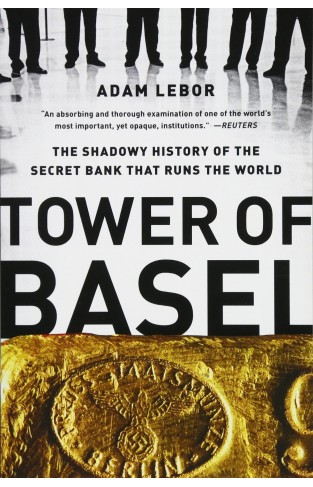
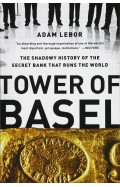
-120x187.jpg?q6)





-120x187.jpg?q6)


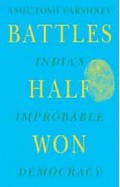

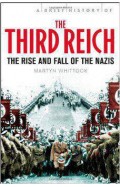
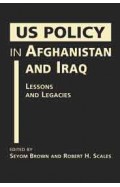

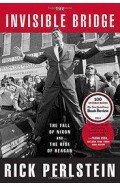
-120x187.jpg?q6)
